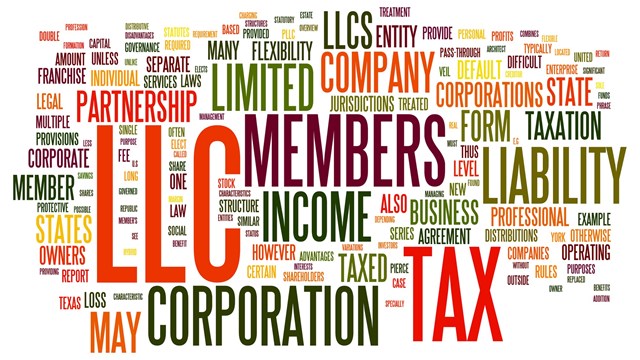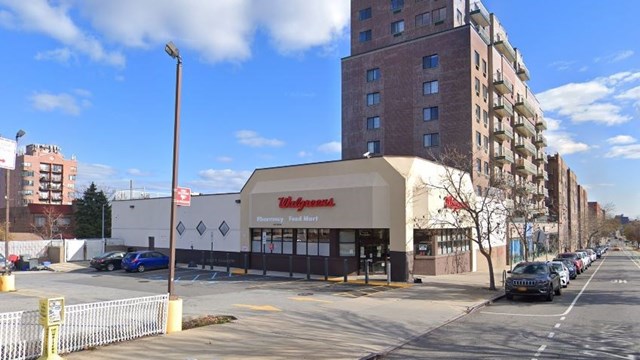The U.S. Treasury Department announced in January that it will begin to track illicit cash purchases of luxury condos in New York and Miami. In New York, the new regulations will apply to cash transactions of $3 million or more. The federal agency cited a New York Times report last year that detailed how deep-pocketed individuals from overseas are buying up luxury residential real estate in Manhattan as a safe place to park their cash.
The influx of foreign money has helped to sustain a boom in luxury condo developments that only very recently has shown signs of cresting. With the federal government nosing around, do condo boards need to be cautious with these international buyers who use Manhattan high rises as their savings account in the sky? The answer is, well, no.
Follow the Money
“There’s not a lot of direct impact on boards of buildings,” says Marc Landis, managing partner and real estate department chair of Phillips Nizer LLP in New York City. Boards themselves are not involved in the sale of a unit. Instead, the onus of the Treasury’s new regulations falls on the buyer, who is subject to money laundering criminal penalties, and the title company, which reports the sale. “The title companies have to act, meaning they’re the police officers. They have to do the revealing in the document,” added Adam Leitman Bailey, founding partner of the Manhattan-based law firm of Adam Leitman Bailey P.C.
The federal order (the Treasury does not call it a “regulation”) goes after a niche target if there ever was one. The words “mortgage” or “loan” have no place in this drama. The culprit is money orders: cashier’s checks, traveler's checks, and yes, actual cash. “It does happen. I’ve had closings where they go in a separate room with bags. Remember, all these properties are over $3 million,” says Bailey.
It’s not only the traceless cash that the Treasury sees as a problem, it’s also the nameless owners. Rather than simply wire transfer money to the title company, many foreign buyers set up limited liability companies, so they don’t have to divulge their identity.
Still, boards of luxury buildings have little reason to worry. The only reason boards would be implicated by the regulation would be if they exercised their right of first refusal—which they rarely do—and if they paid more than $3 million in cash to do so, also extremely unlikely.
Hiding in LLCs
"It’s primarily a question with newer construction condominiums, where there may be a significant percentage of non-ownership occupants," said Landis. "There are people buying the units for investment purposes—which would be a very legitimate reason for someone to be in an LLC, for instance—and they turn around and rent it out. So if you’re going to a condominium, you’re already making the decision that it’s not a co-op, and you’re not going to have a board that’s voting on and vetting your neighbors in the same way."
Co-op buildings in Manhattan are notoriously exclusive; boards have a great deal of leeway in deciding who they get to accept and turn away from their buildings. Condos have far less red tape before signing on the dotted line.
Part of the ambivalence may be that this ultra-rich demographic of international unit owners tends to be very low-key neighbors. "If the apartment next to you is empty because it’s under foreign ownership, and it’s only occupied two weeks a year when somebody’s in town for a shopping spree, you probably are indifferent as to whether the person bought it with 'clean' money or 'dirty money,'" says Landis.
Shadow Investors, Quiet Neighbors
Bottom line: an empty apartment means no drama. “As your attorney, there’s nothing better than someone buying a building and no one living there, because they’re not going to cause any problems,” says Bailey.
Landis says the regulations are not likely to radically affect the high-end condo market, but may help further slow the demand for luxury condo units, which began before the Treasury’s announcement.
What’s next? For now, the Treasury chose to focus on two very select markets in New York and Miami that happen to also be the flashiest. The logical conclusion, according to Landis, is to expand the tracking of cash purchases to more markets. For instance, the suburbs. “Why not cover houses in Westchester County or Fairfield County in Connecticut or Bergen County in New Jersey? There’s no difference for using it in other places.”
But if foreign buyers were looking to bypass some inconvenient restrictions in the first place, the federal order could simply add a new step to the process rather than end it altogether. “Where somebody might have used an LLC to buy a condo, if they want to make sure that their name is not overtly available, they’ll now set up two LLCs. The first LLC will represent the second LLC, and the second LLC will be the condo,” Landis contends.
LLCs and Comptroller’s Audit
The proliferation of LLCs have also come into play in regard to tax abatements for condos and co-ops. The City Comptroller’s Office released a report in January 2016 saying that it found over 1,000 condos improperly claimed tax abatements, costing the city over $10 million in tax revenue since Fiscal Year 2013.
In the case of these tax breaks, the LLCs in question are not necessarily shadow companies designed to disguise the identity of a condo buyer, but are tied to actual developers and investment companies that tend to buy up entire buildings.
Since 2013, condo and co-op tax breaks were not extended to buildings that were either majority-owned by an LLC or corporation, or sold to one. The audit also found that several properties that were not even residential buildings at all claimed the tax break, including parking garages, storage spaces, and even three office buildings.
“The city handed out millions in tax abatements to corporate-owned condos, parking spots and cabanas because no one bothered to review basic tax records,” New York City Comptroller Scott M. Stringer said in a statement. “This money could have been used to fund our schools, put more police on our streets and help house our homeless but instead they lined the pockets of LLCs and corporations. The Department of Finance needs to significantly step up its game and collect all the taxes the city is owed.”
“The Department of Finance needs to recover that money, and take concrete steps to ensure that this abatement works as designed and supports middle-class New Yorkers,” a press spokesman for Stringer’s office said.
Under the law, only individual owners are permitted to receive co-op/condo tax abatements, but the report found that auditors identified 1,085 condos owned by corporate entities that incorrectly received abatements. Abatements were also given out to 164 non-residential properties like garages, storage areas, terraces, cabanas, offices and indoor parking spaces. Between fiscal years 2013 and 2016, these abatements cost the city $159,710 in lost revenue.
The DOF will likely be more vigilant going forward on which condos and co-ops file for this tax abatement thanks to the comptroller’s audit. The report did not include any affected co-op buildings. Bailey says cooperatives file for the tax abatement as a whole, so if any shareholders were represented by an LLC, the closed loophole could affect the bottom line for a co-op building’s tax filings. “The cooperative buildings, at least half of the ones I represent, they don’t actually give these abatements back to the shareholders, they use it to pay off their expenses. So now they may actually owe money to the government, if the DOF follows up on it,” he says.
However, Bailey says that’s unlikely, since any prospective shareholder’s finances are vetted thoroughly before buying into a co-op. In New York City, heavily guarded co-op boards rarely, if ever, accept applicants who operate through an LLC.
Bailey says condo boards, too, are also unlikely to see any negative effects by the audit, since unit owners file for the tax abatement individually. Any unit owner that carries their title through an LLC may see their tax returns affected, but that would not directly impact filings by the board.
Compared to New York City condos, co-ops financially vet their neighbors like a presidential candidate. Shortcuts and shady business dealings are rarely tolerated. Condos are a whole other matter, and the recent movement from the feds and city comptroller show that mega-condo real estate dealings are no longer the Wild West of the past few years. While the crackdown mostly targets suspicious individual buyers and some behavior on the part of developers, condo boards may want to take note. Condo buildings may have little recourse in deciding who gets to live in their building, but it never hurts to keep an ear to the ground.
Tom Lisi is the associate editor of The Cooperator.







Leave a Comment